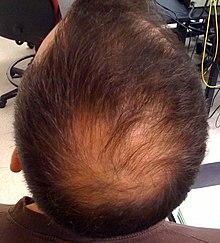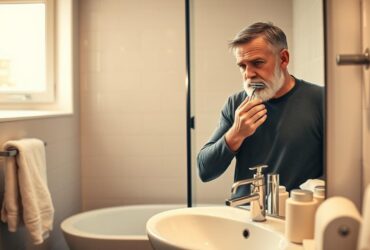In the intricate tapestry of human biology, few hormones elicit as much interest and debate as testosterone. Often heralded as the cornerstone of masculinity, testosterone plays a multifaceted role in our bodies, influencing everything from libido to muscle mass. However, the relationship between testosterone levels and hair health has become increasingly prominent in discussions surrounding hormone therapy. As more individuals explore testosterone therapy for a range of reasons—ranging from age-related decline to medical conditions—questions about its impact on hair loss have emerged. This article seeks to unravel the complexities of this connection, examining the scientific underpinnings of testosterone therapy and its potential effects on hair growth and loss. By delving into the nuances of this hormonal intervention, we aim to provide clarity in a realm often clouded by myths and misconceptions.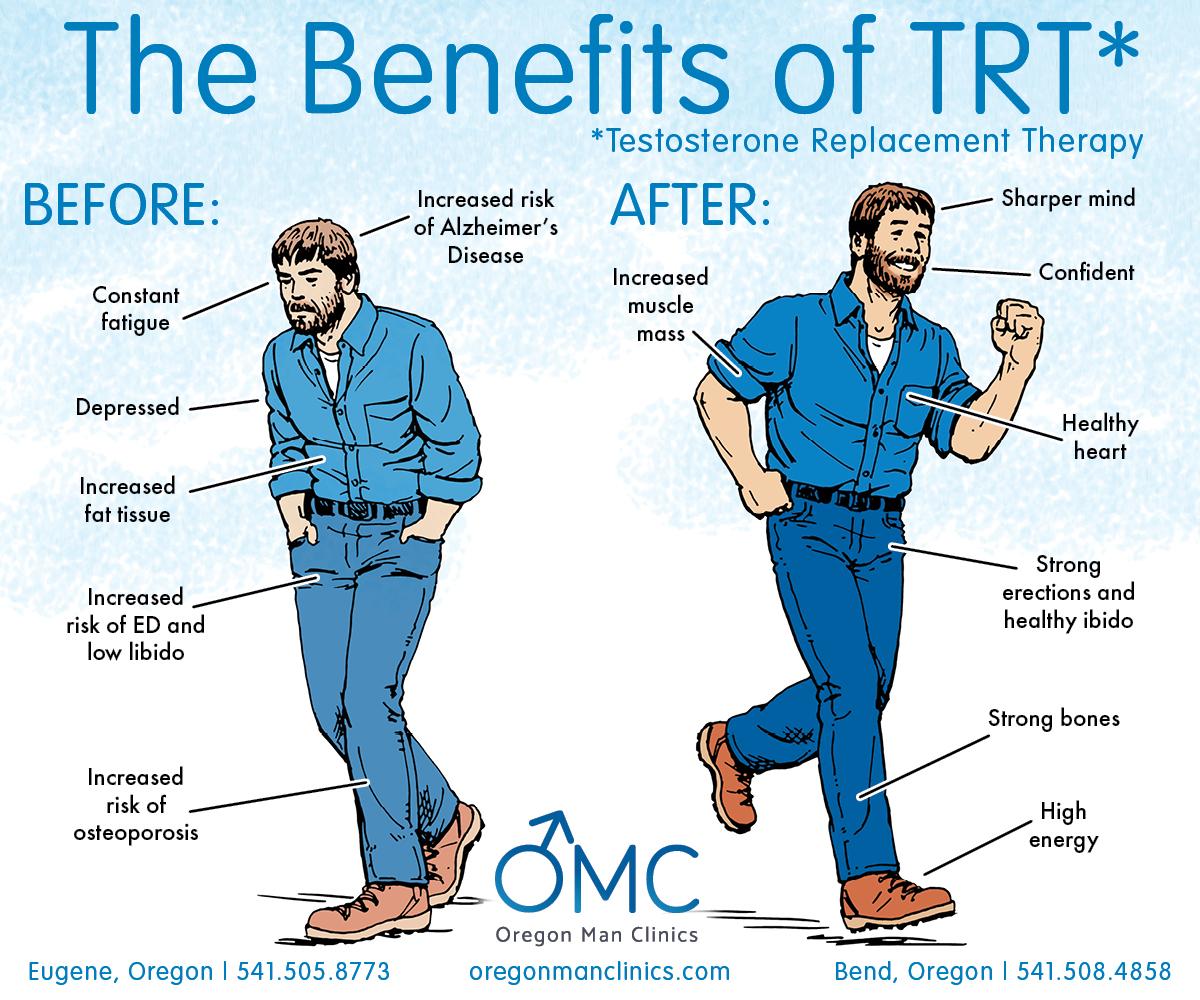
Understanding Testosterone Therapy and Its Link to Hair Loss
Testosterone therapy, often prescribed to address low testosterone levels, has garnered attention for its potential impact on hair loss. While testosterone is essential for various bodily functions, including muscle and bone health, its connection to hair follicles is complex. The hormone itself is converted into dihydrotestosterone (DHT), a more potent androgen that can bind to hair follicle receptors, leading to a shortening of the hair growth cycle. This reaction can result in hair thinning and eventual loss, particularly in individuals genetically predisposed to androgenetic alopecia, commonly known as male or female pattern baldness.
Understanding the relationship between testosterone therapy and hair loss involves recognizing both the benefits and risks of treatment. Here are a few key points to consider:
- Individual Sensitivity: Not everyone experiences hair loss; genetic factors play a significant role.
- DHT Levels: Monitoring DHT levels during therapy can help in managing potential side effects.
- Alternative Treatments: Medications such as finasteride can mitigate hair loss by blocking DHT production.
| Aspect | Testosterone Therapy | Impact on Hair |
|---|---|---|
| Hair Growth | May stimulate growth in some | Potential thinning in others |
| Duration of Effects | Can vary by individual | Often gradual |
| Management Options | Adjust dosage or type | Consider topical solutions |
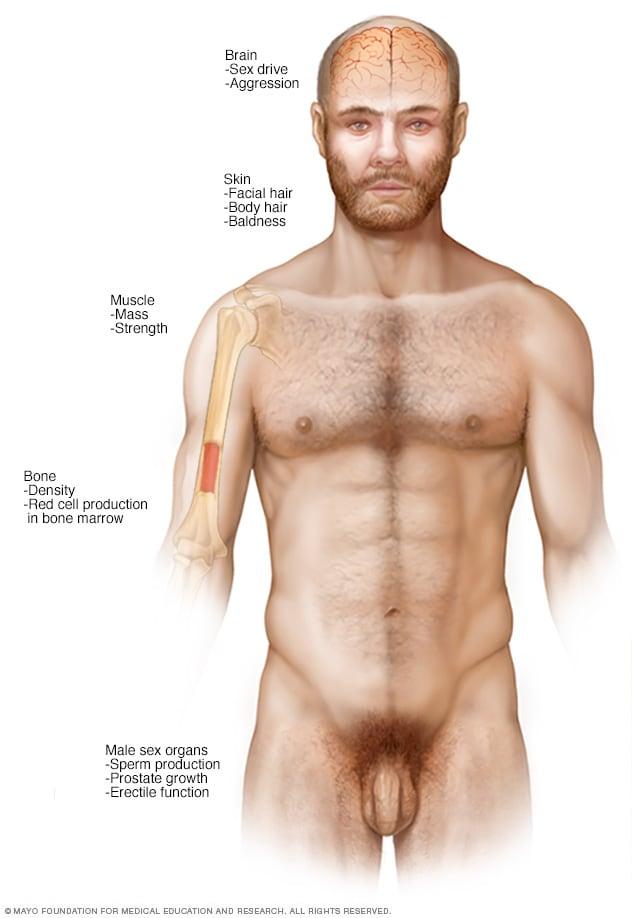
The Science Behind Hormonal Imbalances and Hair Follicles
Understanding the intricate relationship between hormones and hair follicles is essential to grasping the effects of testosterone therapy on hair loss. Hormonal imbalances can lead to various conditions, one of which is hair thinning or loss. In both men and women, an increase in dihydrotestosterone (DHT), a derivative of testosterone, can adversely affect hair growth. DHT binds to receptors in hair follicles, causing them to shrink over time, which can lead to a condition commonly known as androgenetic alopecia or pattern baldness. Key contributing factors that exacerbate hormonal imbalances include:
- Genetics: Family history can play a significant role in how hair follicles respond to testosterone levels.
- Age: Hormonal changes are often more pronounced with age, leading to increased sensitivity of hair follicles.
- Stress: Elevated stress levels can disrupt hormonal balances, further impacting hair health.
When considering testosterone therapy, it is crucial to understand both its potential benefits and complications. While therapy can help restore hormonal balance and alleviate symptoms such as fatigue and libido loss, there may be unintended consequences for hair health. Monitoring testosterone levels and adjusting doses accordingly can play a significant role in mitigating these risks. The following table summarizes the pros and cons of testosterone therapy concerning hair follicles:
| Pros | Cons |
|---|---|
| Increased energy levels | Potential hair loss due to DHT |
| Improved mood | Risk of hormonal imbalance |
| Enhanced muscle mass | Need for continual monitoring |
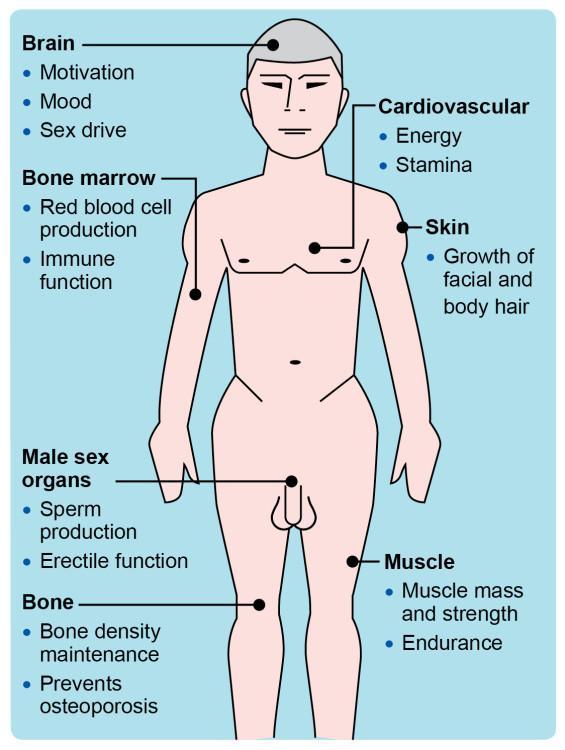
Evaluating the Benefits of Testosterone Therapy for Hair Growth
When considering testosterone therapy as a potential solution for hair loss, it’s essential to weigh its benefits against the backdrop of individual health profiles. Testosterone plays a pivotal role in hair growth by influencing hair follicle activity and promoting the anagen phase of the hair growth cycle. This therapy may be particularly beneficial for those experiencing androgenetic alopecia, a hereditary condition characterized by thinning hair and receding hairlines. Some of the benefits of testosterone therapy may include:
- Increased Hair Density: Patients often report a notable increase in hair density.
- Improved Hair Thickness: Hair strands may become thicker and more resilient.
- Stimulated Growth: The therapy has been linked to stimulating dormant hair follicles.
However, it’s crucial to approach testosterone therapy with caution, as potential side effects can overshadow its advantages. Balancing hormone levels is a complex process, and exceeding recommended doses can lead to various complications, including acne, mood swings, and an increased risk of cardiovascular issues. Before initiating therapy, individuals should conduct a thorough consultation with healthcare professionals to evaluate the risk versus reward ratio. It’s also advisable to consider alternative treatments, such as topical minoxidil, that may complement the efficacy of testosterone therapy.
| Benefits | Considerations |
|---|---|
| Boosts Hair Growth | Potential for Hormonal Imbalance |
| Enhances Hair Thickness | Risk of Side Effects |
| Supports Hair Follicle Health | Needs Professional Monitoring |
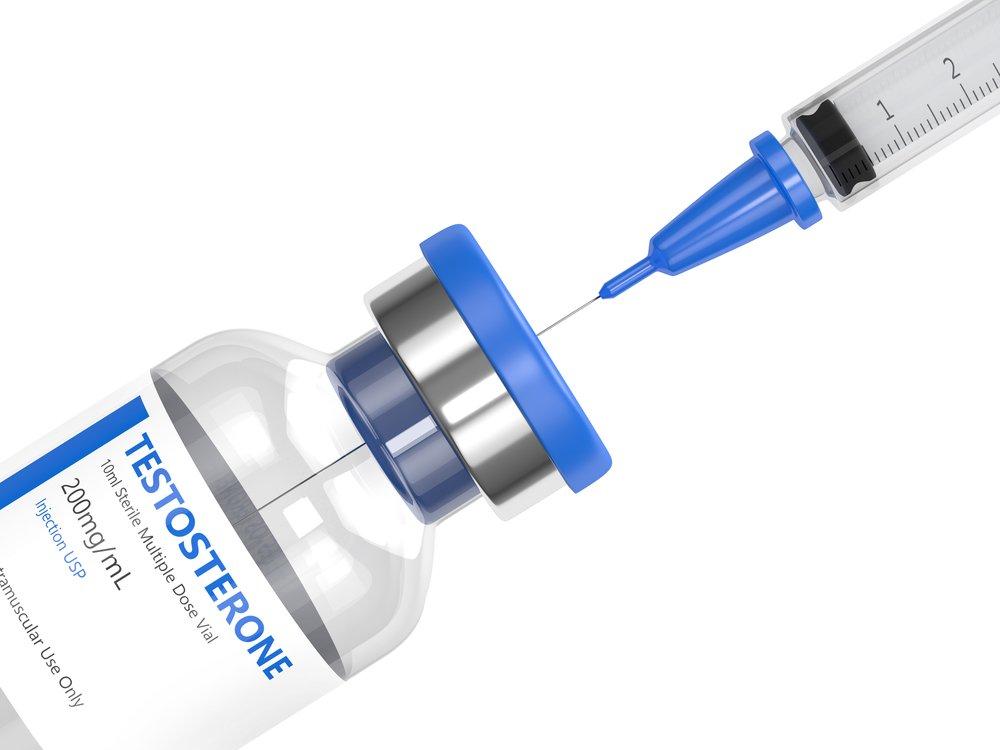
Potential Risks: How Testosterone Therapy May Affect Your Hair
The relationship between testosterone therapy and hair health is complex, influenced by several factors that may lead to varying outcomes. Men undergoing this treatment could experience increased hair growth in areas typically associated with male pattern baldness or delayed hair loss. On the flip side, some may face excessive shedding as their bodies adjust to hormonal fluctuations. It’s crucial to understand that individual responses can differ greatly, often influenced by genetics, existing health conditions, and the method of testosterone delivery.
Below are potential risks associated with testosterone therapy and its effects on hair:
- Hair Thinning: Increased levels of DHT (dihydrotestosterone) exacerbated by testosterone therapy may lead to thinning hair.
- Scalp Sensitivity: Fluctuations in testosterone can cause scalp inflammation, contributing to hair loss.
- Hormonal Imbalance: An improper dosage may disrupt overall hormonal balance, leading to unintended hair loss.
- Pre-existing Conditions: Male pattern baldness may progress more rapidly in individuals with a family history of hair loss.
It’s important for those considering or currently on testosterone therapy to monitor their hair health and consult with healthcare professionals. Below is a simple table highlighting the connection between testosterone therapy and hair-related concerns:
| Concern | Potential Impact |
|---|---|
| Increased DHT Levels | May lead to hair thinning |
| Hormonal Fluctuations | Can cause scalp sensitivity |
| Inconsistent Dosage | Risk of hair loss escalation |
Alternative Treatments for Hair Loss in Patients Undergoing Testosterone Therapy
While testosterone therapy can lead to hair loss in some individuals, various alternative treatments may help mitigate this side effect. These treatments range from topical applications to lifestyle changes, and each may address hair loss stemming from hormonal imbalances. Some viable options include:
- Minoxidil: This topical treatment promotes hair growth and can be used alongside testosterone therapy.
- Finasteride: This oral medication inhibits the conversion of testosterone to dihydrotestosterone (DHT), a hormone linked to hair loss.
- Biotin Supplements: Increasing biotin intake may strengthen hair follicles and promote healthy hair growth.
- Low-Level Laser Therapy (LLLT): A non-invasive treatment that stimulates hair follicles, encouraging hair growth.
In addition to these medical interventions, lifestyle modifications can play a significant role in managing hair loss. Incorporating nutrient-rich foods into the diet, such as those high in omega-3 fatty acids and antioxidants, may enhance hair health. Furthermore, practicing stress-relief techniques, like yoga or meditation, can contribute to overall well-being, potentially reducing hair loss attributed to hormonal fluctuations. Below is a summary of lifestyle changes that can support hair health:
| Lifestyle Changes | Benefits |
|---|---|
| Balanced Diet | Provides essential nutrients for hair growth |
| Regular Exercise | Improves circulation and reduces stress |
| Sufficient Sleep | Supports hormonal balance and recovery |
| Stress Management | May prevent hair loss linked to stress |
Lifestyle Modifications to Support Healthy Hair During Hormonal Changes
Making thoughtful lifestyle modifications can play a crucial role in maintaining healthy hair, particularly during periods of hormonal fluctuations. Incorporating a balanced diet rich in essential nutrients is key. Consider including:
- Protein-rich foods, such as lean meats, fish, and legumes, to support hair structure.
- Dark leafy greens like spinach, which are high in iron and vitamins that promote hair health.
- Healthy fats found in avocados and nuts, contributing to scalp hydration.
- Berries packed with antioxidants to combat oxidative stress on hair follicles.
In addition to dietary changes, implementing a consistent hair care routine can make a significant difference. Gentle cleansing and conditioning are paramount to preserve scalp health. Opt for:
- Sulfate-free shampoos to avoid stripping natural oils.
- Moisturizing conditioners that nourish and fortify hair strands.
- Supplements such as biotin or omega-3 fatty acids, which may support hair vitality.
Example of a Nutrient-Rich Food Table:
| Food | Benefits for Hair |
|---|---|
| Quinoa | Rich in protein and essential amino acids. |
| Salmon | High in omega-3 fatty acids. |
| Eggs | Contain biotin and various proteins for hair growth. |
| Sweet Potatoes | Loaded with beta-carotene, promoting scalp health. |
Consulting Healthcare Professionals: Making Informed Decisions About Hair and Hormones
When considering testosterone therapy, it’s crucial to engage with healthcare professionals who can provide personalized guidance. Testosterone plays a significant role in hair growth and loss, making informed discussions vital. A comprehensive evaluation of your medical history, symptoms, and lifestyle can help practitioners identify the right approach to treatment. It’s not just about increasing testosterone levels; understanding how these hormones interact with hair follicles can illuminate potential effects on your hair. Areas to explore in consultation may include:
- Individual hormone levels: Testing for testosterone and other hormones.
- Medical history: Exploring any prior conditions or treatments related to hair loss.
- Potential side effects: Discussing how therapy might influence hair growth negatively or positively.
Moreover, when weighing the risks and benefits of therapy, consider the role of androgenic factors. For some individuals, testosterone replacement may lead to hair regrowth; for others, it might exacerbate thinning. Regular follow-ups with healthcare providers are essential to monitor changes and adjust treatment accordingly. Below is a simplified overview of possible outcomes based on testosterone therapy:
| Outcome | Potential Effect on Hair |
|---|---|
| Increased testosterone | Possible hair regrowth in some areas |
| Balanced hormone levels | Stabilization of existing hair |
| Excessive androgen levels | Increased hair thinning or loss |
Q&A
Q&A: Understanding Testosterone Therapy and Hair Loss
Q1: What is testosterone therapy and why is it commonly prescribed?
A1: Testosterone therapy involves administering testosterone to individuals who have low levels of this hormone, a condition often referred to as hypogonadism. Commonly prescribed to men, it can help alleviate symptoms such as fatigue, depression, decreased libido, and loss of muscle mass. However, it is not limited to men; women with certain hormonal imbalances may also benefit from therapy.
Q2: How does testosterone therapy impact hair loss?
A2: The relationship between testosterone and hair loss is complex. Testosterone itself isn’t necessarily the villain; rather, it’s a potent derivative called dihydrotestosterone (DHT) that can cause hair follicles to shrink, leading to hair thinning or loss, particularly in genetically predisposed individuals. While testosterone therapy can increase DHT levels, resulting in hair loss for some, it may have a neutral or even positive effect on hair for others.
Q3: Can testosterone therapy cause hair loss in women?
A3: Yes, women can experience hair loss as a side effect of testosterone therapy. In women, elevated levels of testosterone and its byproducts can lead to androgenetic alopecia, a condition characterized by thinning hair. Some women might notice changes in their hair density, particularly if they are predisposed to forms of hair loss due to genetic factors or hormonal imbalances.
Q4: Are all patients who undergo testosterone therapy at risk of hair loss?
A4: Not all patients are at risk of hair loss from testosterone therapy. Genetic predisposition plays a significant role. Individuals with a family history of androgenetic alopecia may be more susceptible, while others might not experience any noticeable changes in their hair growth. Additionally, dosage and administration method can influence the likelihood of hair loss.
Q5: What can individuals do to mitigate the risk of hair loss while undergoing testosterone therapy?
A5: Those concerned about hair loss should consult their healthcare provider to discuss their risks and concerns. Options can include adjusting the dosage, switching to an alternative therapy, or considering medications that inhibit DHT, such as finasteride. It’s also beneficial to maintain a healthy lifestyle with proper nutrition and scalp care, as these can support overall hair health.
Q6: Are there any research studies examining the link between testosterone therapy and hair loss?
A6: Yes, several studies have explored the impact of testosterone therapy on hair loss. Some findings suggest that while testosterone therapy can potentially accelerate hair loss in individuals predisposed to androgenetic alopecia, the data remains inconclusive for others. Ongoing research aims to clarify these relationships and identify patterns among different populations to provide clearer guidelines for therapy.
Q7: Is hair loss reversible after discontinuing testosterone therapy?
A7: Hair loss caused by testosterone therapy may be reversible in some cases. Upon the cessation of therapy, individuals may experience regrowth, especially if they have not reached advanced stages of hair loss. However, regrowth can vary significantly from person to person, and in some instances, hair loss may continue irrespective of therapy discontinuation, particularly if genetic predisposition is involved.
Q8: What should someone consider before starting testosterone therapy regarding hair loss?
A8: Before starting testosterone therapy, individuals should have an in-depth discussion with their healthcare provider about their medical history, family history of hair loss, and potential side effects. It’s crucial to weigh the benefits of therapy against the risks and to create a customized treatment plan that considers all aspects of health, including hair loss.
By understanding the nuanced relationship between testosterone therapy and hair loss, individuals can make informed decisions about their treatment options, balancing benefits and potential drawbacks with expert guidance.
Final Thoughts
In the intricate dance of hormones and health, testosterone therapy stands out as both a potential ally and a source of concern, particularly in the realm of hair loss. As we navigate the complex landscape of treatments and their effects, it becomes essential to approach testosterone therapy with a well-informed perspective. Understanding its benefits alongside its possible side effects, including changes in hair growth, can empower individuals to make choices that align with their personal health goals.
Ultimately, the journey through hormone therapy is not just about the numbers on a test report but about feeling balanced and at ease in one’s own skin. Whether you’re considering therapy as a means to address testosterone deficiency or simply seeking to understand its implications, engaging in open conversations with healthcare professionals can illuminate the path forward. By fostering awareness and seeking tailored solutions, you can approach the relationship between testosterone and hair loss with both caution and confidence, ensuring that your health decisions are as multifaceted as the body itself.

